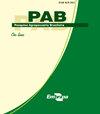延迟封口和微生物接种剂对玉米青贮品质的影响
IF 0.7
4区 农林科学
Q3 AGRICULTURE, MULTIDISCIPLINARY
引用次数: 0
摘要
摘要本研究的目的是确定密封延迟12小时和使用带有异发酵菌的微生物接种剂对整株玉米青贮的影响。实验设计完全随机化,采用2×2因子排列(有或没有接种剂×有或没有密封延迟)。青贮的化学成分、体外干物质消化率(IVDMD)、发酵参数、损失、有氧稳定性和微生物谱进行了评估。呼吸加热青贮使中性洗涤不溶性蛋白质和酸性洗涤不溶性蛋白质含量分别提高了77%和27.3%。可溶性碳水化合物的损失使经灰分和蛋白质校正的中性洗涤纤维含量提高9.1%,酸性洗涤纤维含量提高5.1%,而非纤维性碳水化合物含量降低11.2%。治疗间IVDMD无差异。延迟封口青贮和接种剂青贮的pH值和乙酸、丙酸、氨态氮含量较高,乳酸含量较低。延迟封封降低了青贮饲料的营养价值,增加了纤维组分,降低了可溶性碳水化合物,而接种剂的使用并没有提高青贮饲料的营养价值和有氧稳定性。本文章由计算机程序翻译,如有差异,请以英文原文为准。
Corn silage quality under delayed sealing and microbial inoculant use
Abstract The objective of this work was to determine the effects of sealing delay for 12 hours and of the use of microbial inoculant with heterofermentative bacteria on whole-plant corn (Zea mays) silage. The experimental design was completely randomized in a 2×2 factorial arrangement (with or without inoculant × with or without sealing delay). Silage was evaluated for: chemical composition in vitro dry matter digestibility (IVDMD), fermentative parameters, losses, aerobic stability, and microbiological profile. The heating of the silage caused by respiration increased the contents of neutral detergent insoluble protein and of acid detergent insoluble protein by 77 and 27.3%, respectively. Soluble carbohydrate losses increased the contents of neutral detergent fiber corrected for ash and protein by 9.1% and of acid detergent fiber by 5.1%, but decreased the content of nonfibrous carbohydrates by 11.2%. IVDMD did not differ between treatments. Silages with delayed sealing and the inoculant showed higher pH and contents of acetic acid, propionic acid, and ammoniacal nitrogen, but a lower content of lactic acid. Delayed sealing reduces the nutritional value, increases the fibrous fractions, and decreases the soluble carbohydrates, whereas the use of inoculant does not improve the nutritional value and aerobic stability of the silages.
求助全文
通过发布文献求助,成功后即可免费获取论文全文。
去求助
来源期刊

Pesquisa Agropecuaria Brasileira
农林科学-农业综合
CiteScore
1.20
自引率
0.00%
发文量
45
审稿时长
9-18 weeks
期刊介绍:
Pesquisa Agropecuária Brasileira – PAB – is issued monthly by Empresa Brasileira de Pesquisa Agropecuária – EMBRAPA, affiliated to Ministry of Agriculture, Livestock and Food Supply. PAB publishes original scientific-technological articles on Plant Physiology, Plant Pathology, Crop Science, Genetics, Soil Science, Food Technology and Animal Science.
Its abbreviated title is Pesq. agropec. bras., and it should be used in bibliographies, footnotes, references and bibliographic strips.
 求助内容:
求助内容: 应助结果提醒方式:
应助结果提醒方式:


